“I couldn’t tell you the dates of any cup finals, but I can tell you the date of Eduardo’s injury,” says former Arsenal physiotherapist Colin Lewin. “It was February 23, 2008.”
It’s been more than 12 years since Arsenal’s 2-2 draw against Birmingham, but that fateful afternoon at St Andrew’s remains firmly etched in the memories of anyone connected with the north London club.
Arsene Wenger’s impressive young team travelled up to the Midlands with the opportunity to move eight points clear at the top of the Premier League with just over two months of the season remaining.
But they ended the game distraught.
One of their key players was in hospital with a career-threatening injury and the squad was divided following an extraordinary on-field meltdown by captain William Gallas, after Birmingham had snatched an equaliser in the closing seconds thanks to a James McFadden penalty.
Next Match
“It was quite the shock to be on the pitch that day,” recalls former Gunners defender Bacary Sagna.
“I don’t want to use it as an excuse for what happened after, but that day at Birmingham was very bad. It put insecurity into the team and we were not able to come back from it.”
No one had expected much from Wenger’s side when they started the 2007-08 campaign. Thierry Henry had just left for Barcelona, Freddie Ljungberg had also moved on – joining West Ham – while Jose Antonio Reyes had completed his permanent switch to Atletico Madrid.
Money was tight due to the financial implications brought on by the move to the Emirates Stadium, with Eduardo – signed for £7.5 million ($9.2m) from Dinamo Zagreb – the costliest of Arsenal’s five new arrivals.
Wenger’s squad was viewed as talented but youthful, and one that would not be able to compete with Manchester United or Chelsea.
However, a team centred round the mercurial Cesc Fabregas in midfield suddenly began to emerge as genuine contenders having won 14 of their opening 15 games in all competitions.
They hit top spot in the Premier League after a 3-1 win at Spurs a month into the season and went into the new year still at the summit, kicking off 2008 with a 2-0 win against West Ham.
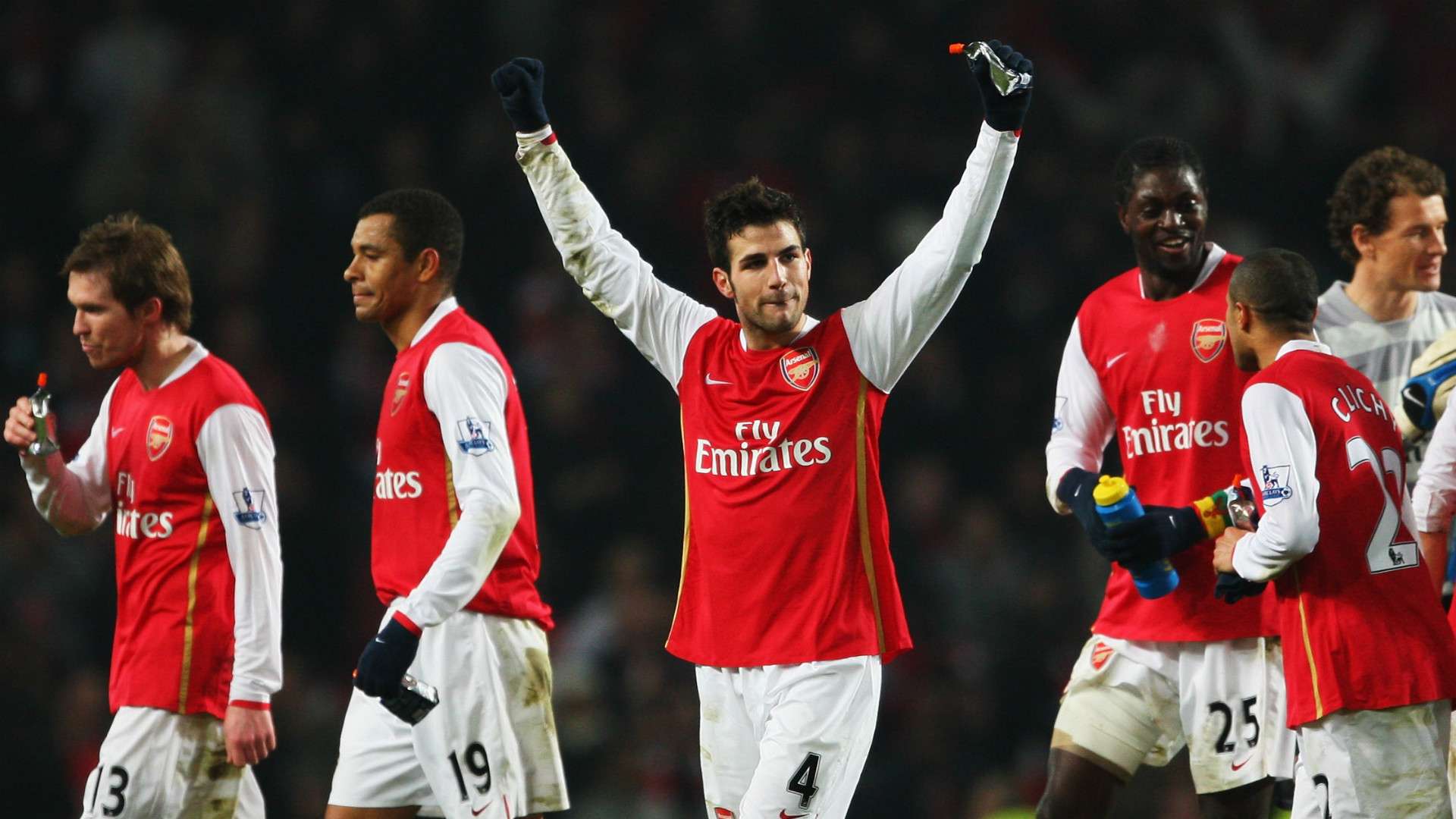 Getty Images
Getty Images
Eduardo – who opened the scoring against the Hammers – and Emmanuel Adebayor were forming a formidable double act up front, with the guile and technical ability of Fabregas and Alexander Hleb combining perfectly with the grit of Mathieu Flamini in midfield.
Arsenal were beginning to look like champions-elect and by the time they made it to St Andrew’s for their last fixture in February, they had a five-point lead over Manchester United in the table.
They went into the game on the back of four successive wins in the Premier League and another three points looked a certainty against a Birmingham side who were rock bottom and heading for relegation.
However, a series of events took place that many believe didn’t just alter the trajectory of Arsenal’s season, but also the second half of Wenger’s 22-year reign as manager.
“What happened that day knocked everyone for six really,” says former Arsenal right-back Justin Hoyte, who was amongst the substitutes at St Andrew’s. “It was so traumatic for everyone and we never really recovered from it.”
The trauma started after just three minutes when Martin Taylor, the Birmingham centre-back, lunged into a challenge on Eduardo, who had just turned onto a pass delivered by Gael Clichy.
By the time Taylor’s sliding tackle reached the Brazil-born Croatia international, the ball had long gone and his studs instead clattered into the striker’s leg and fractured his fibula instantly.
It was a horrific injury, one that shocked everyone on the field. Fabregas’ face as he looked down at his stricken team-mate said it all.
“I was on the bench next to Gilberto and we heard it happen,” says Hoyte. “And then, we could see by everyone's faces how bad it was.
“There was just a sense of shock all around the stadium.”
Within seconds, Arsenal physio Gary Lewin was tending to Eduardo.
“Your training takes over,” Lewin remembers. “The first thing to think about is if it’s either a life-threatening or limb-threatening injury. With Eduardo it was obvious it was a limb-threatening injury.
“Then, you go through the process of stabilising and immobilising the injury, working out how you are going to get them off the pitch in the best way and controlling the pain.”
Eduardo was treated on the pitch for 10 minutes before he was stretchered off and taken to Birmingham’s Selly Oak hospital. Back at St Andrew’s, meanwhile, his team-mates still had a match to try to win.
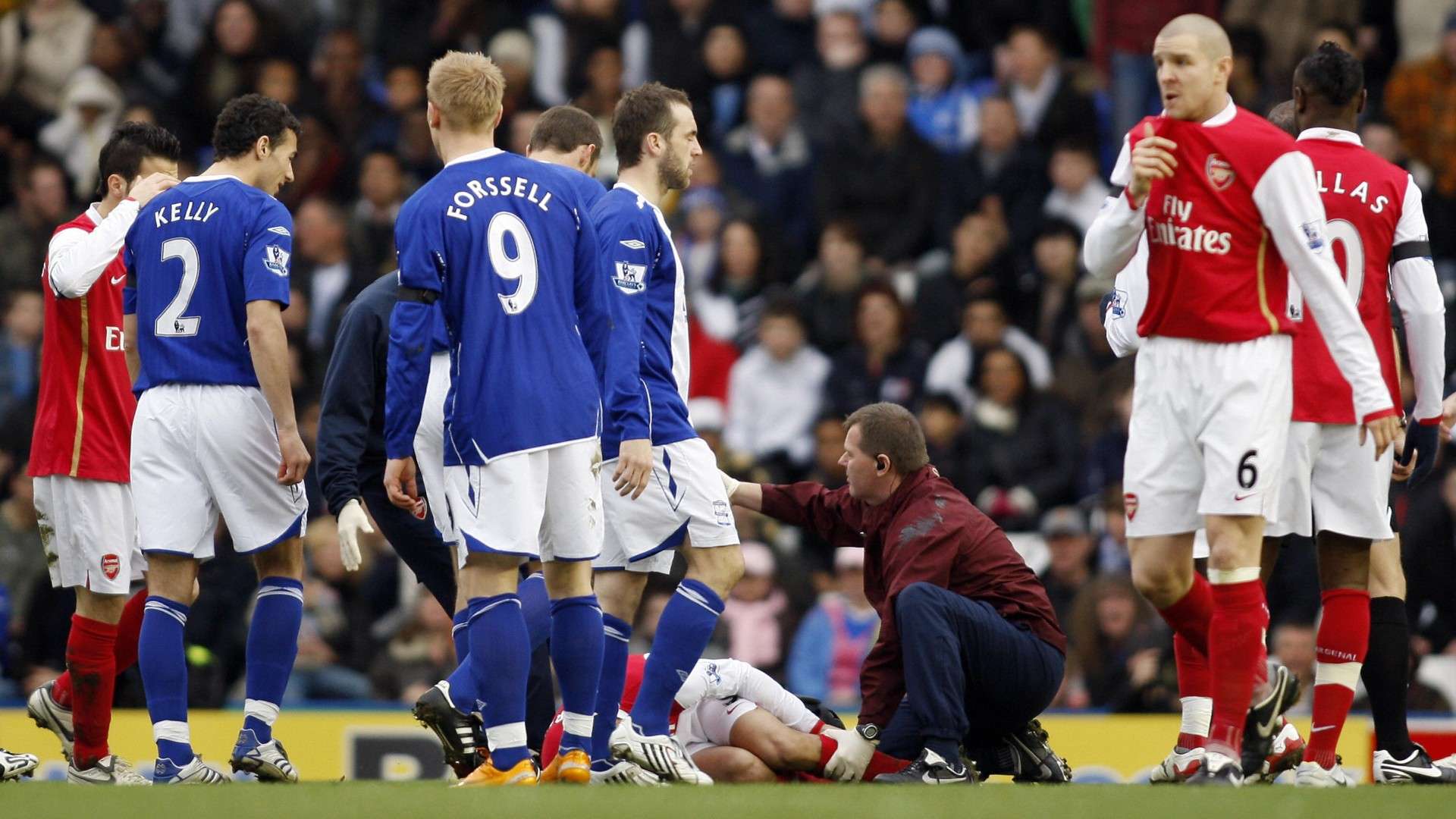
Taylor, who made the challenge, had been sent off, but a sluggish Arsenal still found themselves trailing to a free kick from McFadden at half-time.
A quick-fire double from Theo Walcott in the second half turned the game on its head and it appeared that Wenger’s side had done enough to return to London with all three points.
However, with just seconds remaining – and moments after they had been denied what looked to be a clear penalty at the other end when Adebayor was pulled back in the box – disaster struck.
An error of judgement from Clichy allowed Stuart Parnaby to reach a loose ball inside the penalty area and as the Arsenal left-back attempted to atone for his error, Parnaby went to ground under his challenge and referee Mike Dean pointed to the spot.
Gallas was incensed. As McFadden blasted home the penalty to rescue a 2-2 draw for the home side, the Arsenal captain, who had previously been restrained by security after kicking an advertising hoarding, planted himself on the halfway line.
After the full-time whistle, which followed seconds later, he remained sat on the pitch long after his team-mates had disappeared down the tunnel, only leaving when told to do so by Wenger.
Gallas’ actions infuriated some of his team-mates, especially Gilberto. A fight broke out in the changing room when the Frenchman finally made his way from the pitch. In that moment, much of the team spirit which had been built up that season vanished.
It was a remarkable ending to a truly devastating afternoon.
“The biggest effect long term was what that day did to us mentally,” says Gary Lewin, who was part of five championship-winning squads at Arsenal under Wenger and George Graham.
“My personal feeling is that the Gallas incident was more instrumental than Eduardo’s injury because players do get injured and if anything, if it’s a bad injury, the rest of the team are a bit more determined to do it for them.
“But I think it all got overshadowed by what Gallas did.”
Arsenal still had a six-point lead when they left Birmingham but they drew their next three league games, at home to Aston Villa and Middlesbrough and away to Wigan.
Defeat at Chelsea followed and, in the space of a month, Arsenal had dropped from first to third. When they were also beaten at Manchester United on April 13, their fate was sealed.
Wenger’s team won their final four games of the season, finishing third, four points adrift of United who were crowned champions once again. But that was scant consolation considering where they had been just two months previously.
“I’ve always felt if it wasn’t for that game at Birmingham, we would have gone on and won the league,” says Lewin. “The way we were playing that season, I really felt we had a title-winning team.
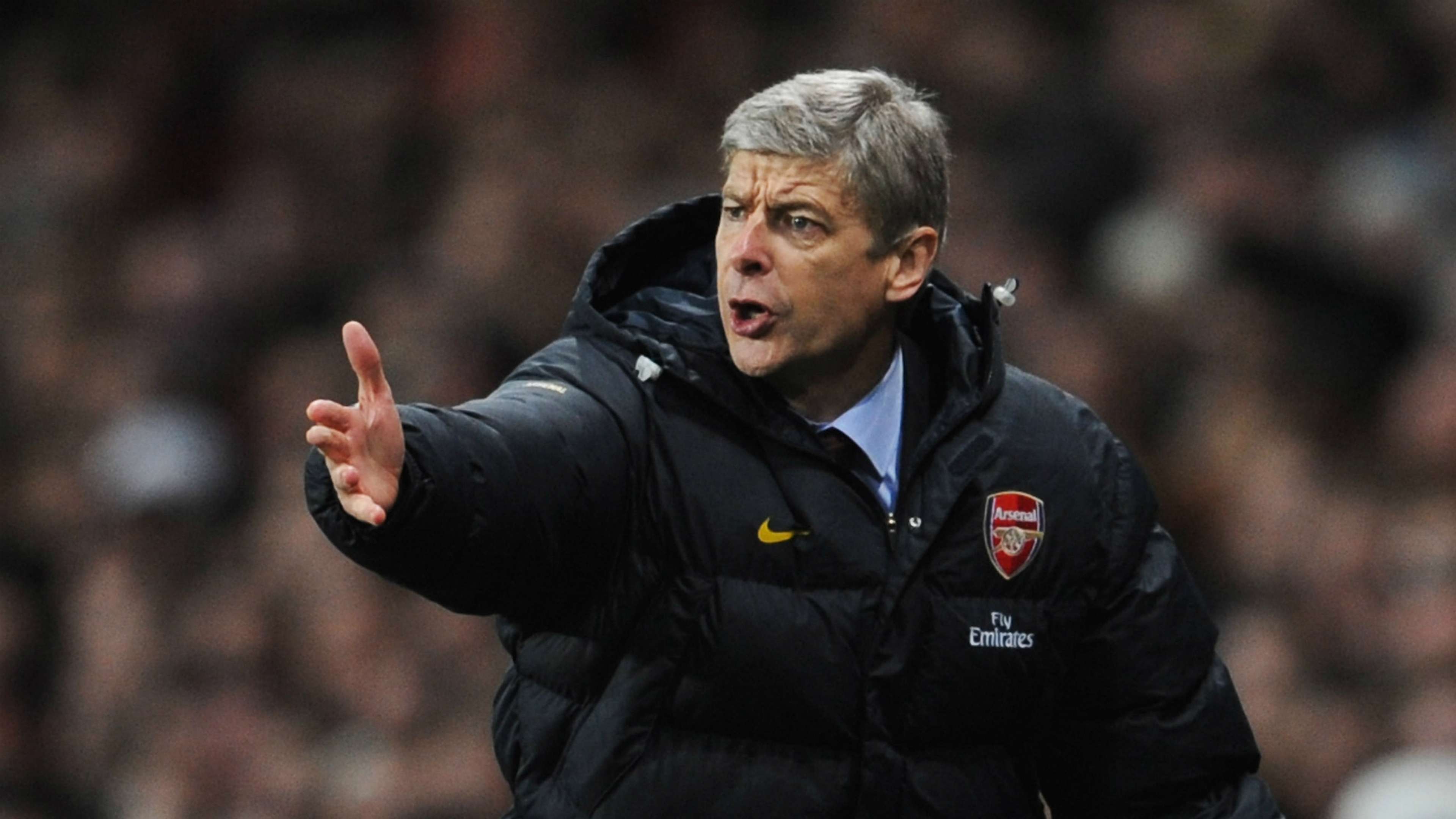
“It was the first season of the post-Invincibles era where it looked like we would go on and do something, but we didn’t and we never really recovered from it in the years that followed.”
“Everything had been going our way,” adds Sagna. “Even when we began the season, we managed to win no matter what. Every time we were losing 1-0, we used to come back and win.
“We believed we could do it. We were so confident and were not scared of anyone. We were playing so well, but that Birmingham game put some insecurity in our team for the first time. It maybe made us think about what might happen next.
“It was a massive blow."
Arsenal amassed 83 points in the 2007-08 season, losing just three games along the way.
They haven’t bettered that points haul since, nor have they come closer to lifting the title for the first time since their historic unbeaten triumph in 2004.
In the years that followed, they continuously lost their star players, with the likes of Fabregas, Adebayor, Hleb, Clichy, Samir Nasri, Alex Song and Robin van Persie all moving on in the belief they had more chance of winning trophies elsewhere.
A potential golden era was lost, with Wenger having to wait until 2014 to win another trophy.
Had events not unfolded as they did in Birmingham on February 23, 2008, there are many who are adamant that Arsenal's recent history would look very different.
“I really feel if we’d won the league that season it would have taken Arsenal to another level and kept that momentum the club had built up in terms of winning trophies and having a winning mentality,” says Hoyte.
“I think it could have been a period of domination if we’d gone on and won that title. A lot of players wouldn’t have thought they had to go elsewhere to win the league and a lot more players would have wanted to join us as well.
“Winning that title would have given them the belief that they could achieve what they wanted to achieve at Arsenal.
“But what happened that season instead allowed some doubts to get into people's minds and once that doubt starts, it’s a downward spiral really because you start getting negative thoughts rather than positive ones.”
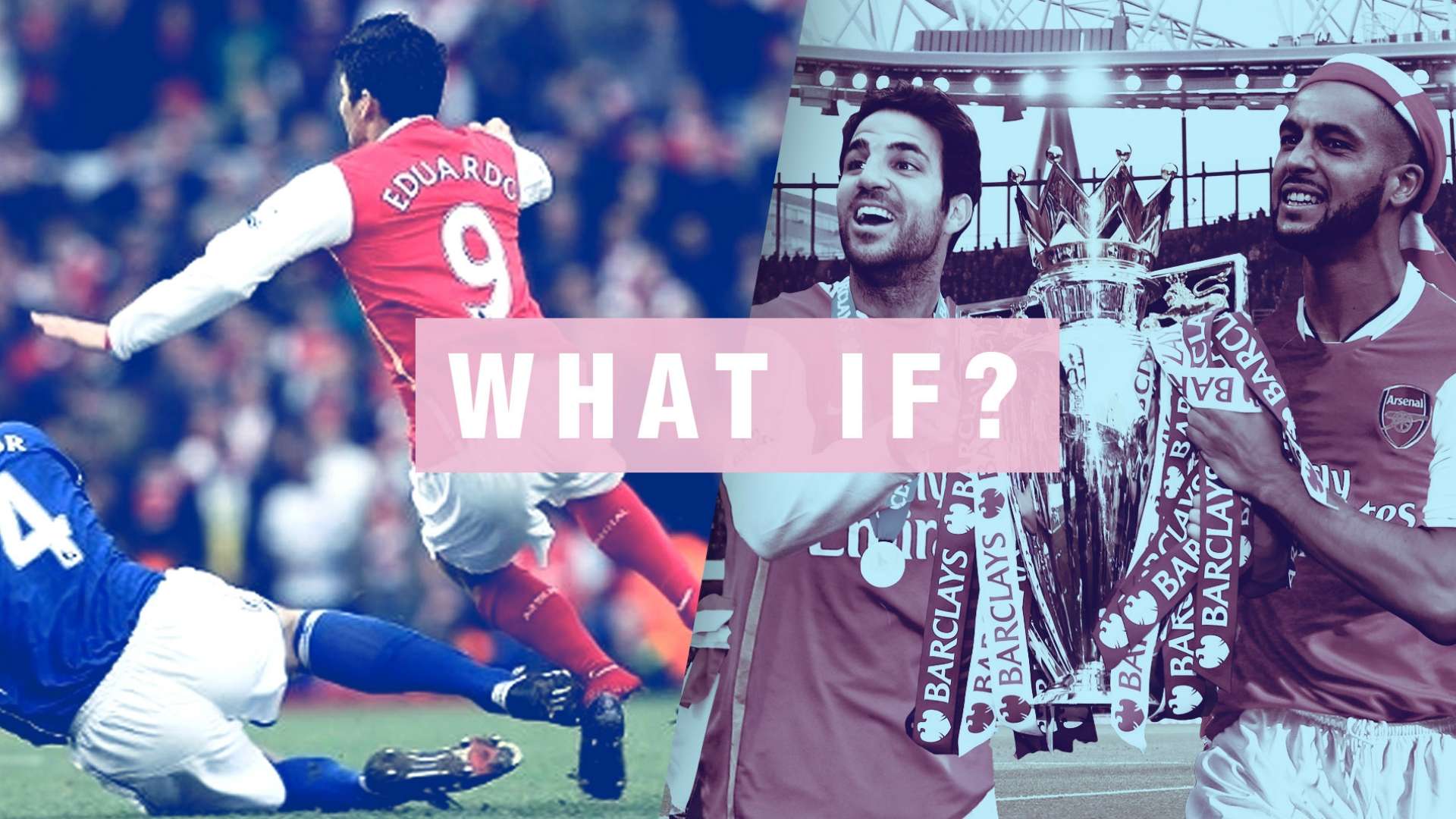


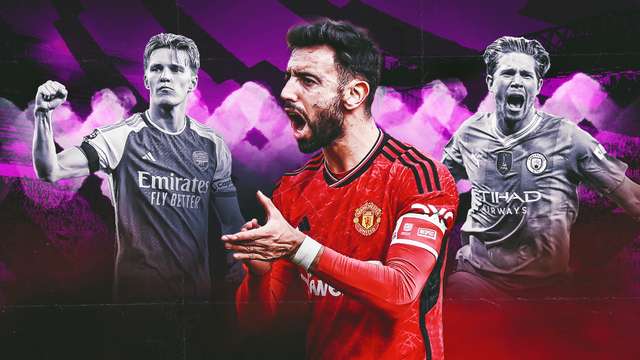
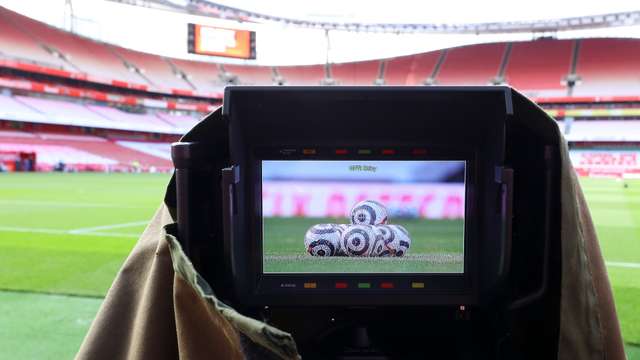
.jpg?auto=webp&format=pjpg&width=640&quality=60)
-min.png?auto=webp&format=pjpg&width=640&quality=60)